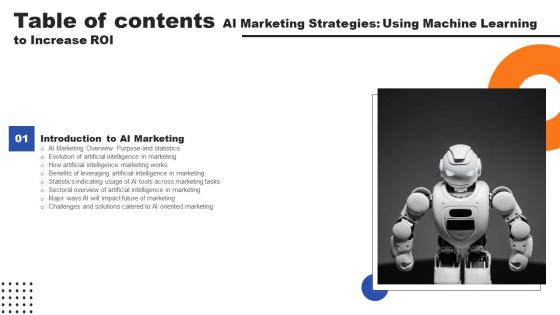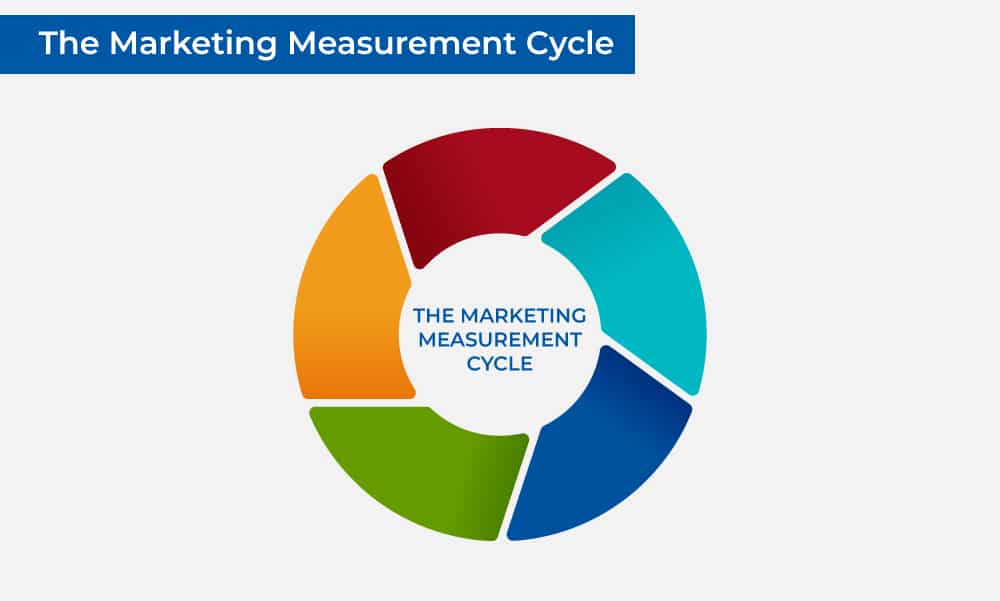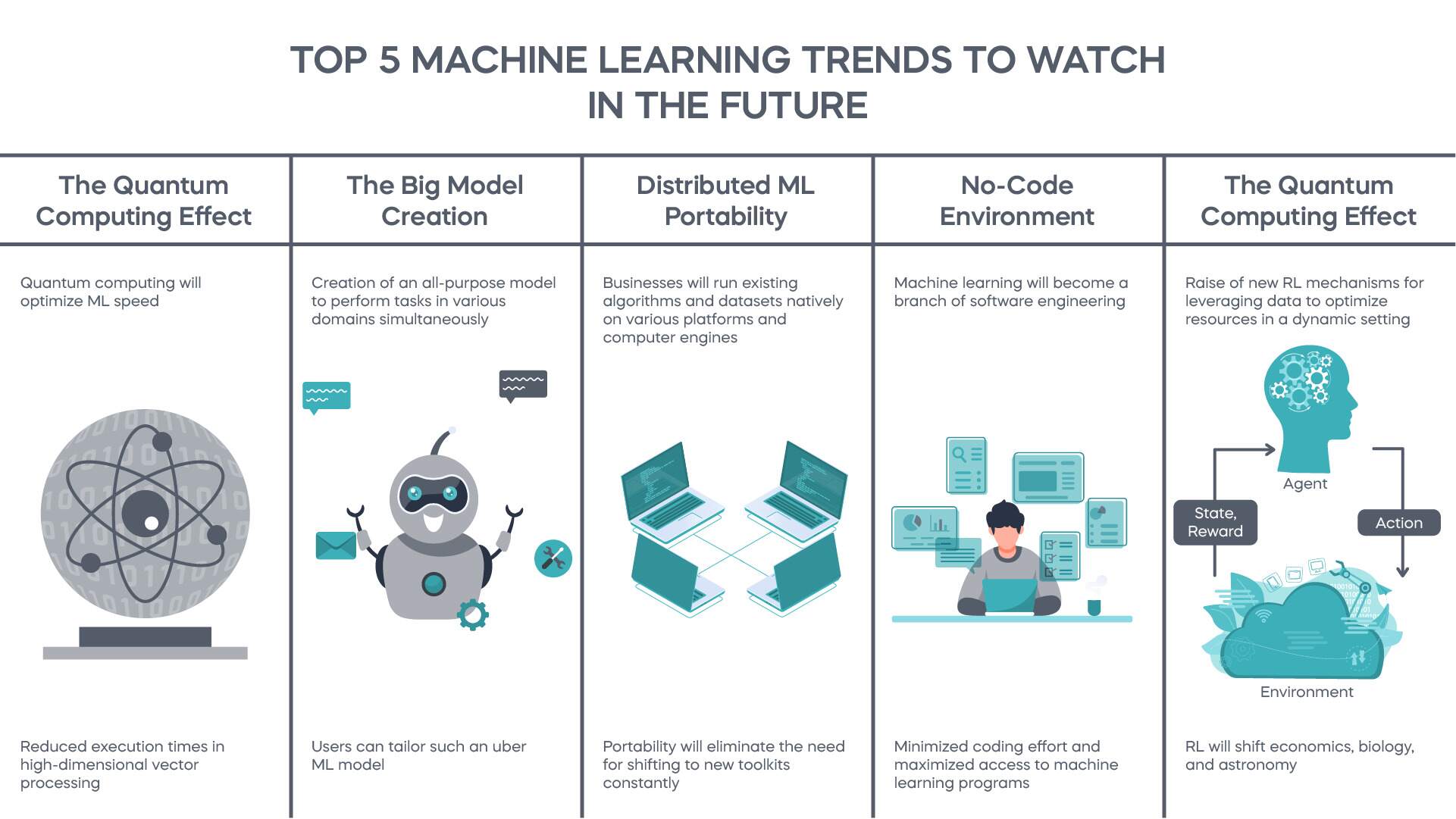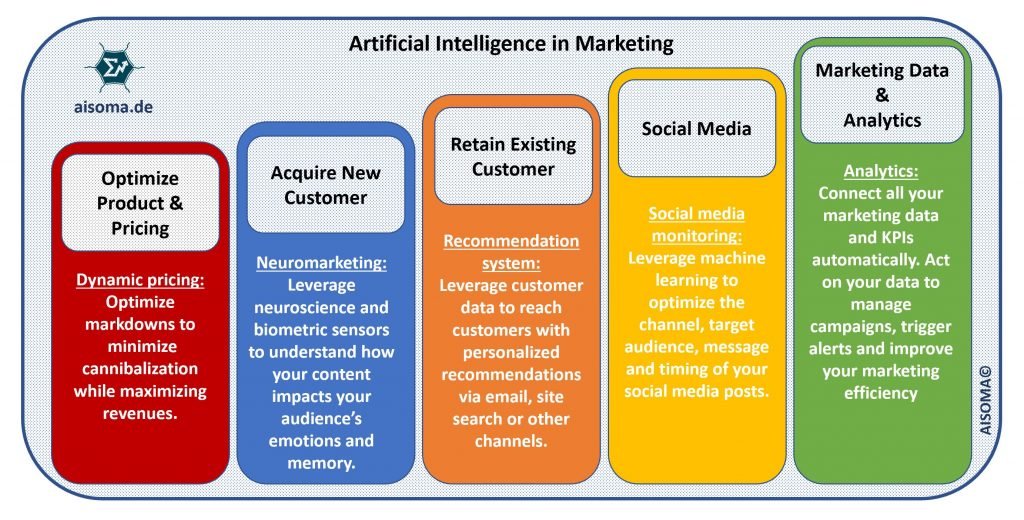
Table of Contents:
As we delve deeper into the transformative power of machine learning in marketing, it’s essential to structure our exploration clearly. Here’s a roadmap that highlights the key topics covered in the article:
- Overview of Machine Learning in Marketing
- Defining Machine Learning
- Applications of Machine Learning in Marketing
- Role of Machine Learning in Customer Analysis
- Customer Segmentation
- Predictive Analytics for Customer Behavior
- Personalization and Targeting Strategies with Machine Learning
- Dynamic Content Personalization
- Behavioral Targeting Techniques
- Enhancing Marketing Campaigns through Machine Learning
- Automated Content Generation
- Optimal Timing and Channel Selection
- Measuring and Analyzing Marketing ROI with Machine Learning
- Attribution Modeling
- Predictive Analytics for Campaign Success
- Challenges and Ethical Considerations
- Data Privacy and Security
- Bias and Fairness in Machine Learning Algorithms
- Future Trends and Opportunities
- AI-Powered Marketing Tools
- Integration of Machine Learning with CRM Systems
By following this structured guide, readers will gain a comprehensive understanding of how the impact of machine learning on marketing strategies reshapes the industry landscape. Each section promises insights that can enhance your marketing efforts!

Table of Contents:
As we transition into discussing the significant implications of machine learning in marketing, it’s crucial to provide a clear outline of the upcoming sections. This structure will not only guide our exploration but ensure that you can easily navigate through the rich insights being shared.
- Overview of Machine Learning in Marketing
- Defining Machine Learning
- Applications of Machine Learning in Marketing
- Role of Machine Learning in Customer Analysis
- Customer Segmentation
- Predictive Analytics for Customer Behavior
- Personalization and Targeting Strategies with Machine Learning
- Dynamic Content Personalization
- Behavioral Targeting Techniques
- Enhancing Marketing Campaigns through Machine Learning
- Automated Content Generation
- Optimal Timing and Channel Selection
- Measuring and Analyzing Marketing ROI with Machine Learning
- Attribution Modeling
- Predictive Analytics for Campaign Success
- Challenges and Ethical Considerations
- Data Privacy and Security
- Bias and Fairness in Machine Learning Algorithms
- Future Trends and Opportunities
- AI-Powered Marketing Tools
- Integration of Machine Learning with CRM Systems
For anyone looking to understand the impact of machine learning on marketing strategies, this roadmap sets the stage for a deep dive into transformative concepts and practices that can redefine your approach to marketing!

Overview of Machine Learning in Marketing
Defining Machine Learning
Machine learning is revolutionizing how we approach marketing by enabling systems to learn from data. Imagine a virtual assistant that gets smarter every time you interact with it—that’s machine learning! In essence, it allows algorithms to analyze patterns, make predictions, and improve over time without being explicitly programmed. Marketers can leverage techniques like supervised learning, unsupervised learning, and reinforcement learning to derive insights from customer data, predict trends, and optimize strategies.
Applications of Machine Learning in Marketing
The beauty of machine learning is its versatile applications in marketing. Here are a few noteworthy examples:
- Customer Insights: Brands can extract valuable insights from consumer behavior data, helping to foster deeper connections.
- Recommendation Systems: Think Netflix or Amazon; these platforms use machine learning to suggest products based on your preferences.
- Ad Targeting: Precise targeting allows marketers to reach specific demographics with tailored messages, enhancing conversion rates.
Machine learning’s impact on marketing strategies is profound, offering efficiency and personalization that were previously unattainable. This is just the tip of the iceberg when it comes to its capabilities!
Role of Machine Learning in Customer Analysis
Customer Segmentation
Moving forward, let’s explore the pivotal role of machine learning in customer analysis, particularly in customer segmentation. This process involves dividing a customer base into distinct groups based on various characteristics like demographics, purchasing behavior, or preferences. Machine learning algorithms can process vast amounts of data to identify these segments more accurately and efficiently than traditional methods.
For example, a clothing retailer might use machine learning to segment customers into groups such as bargain hunters, trendsetters, or loyal shoppers. This granularity allows for more personalized marketing, resulting in better engagement and conversion rates.
Predictive Analytics for Customer Behavior
Once segmentation is established, predictive analytics comes into play. This powerful tool uses historical data to forecast future customer behaviors. For instance:
- Churn Prediction: Businesses can identify which customers are likely to leave, enabling proactive retention strategies.
- Purchase Predictions: With machine learning, brands can predict what products customers may want next, prompting timely marketing efforts.
By harnessing machine learning in customer analysis, brands can make informed decisions, enhance customer experience, and ultimately foster loyalty. It’s a game-changer in understanding and anticipating customer needs!
Personalization and Targeting Strategies with Machine Learning
Dynamic Content Personalization
As we segue into personalization and targeting strategies, one of the most exciting aspects is dynamic content personalization. This approach allows brands to tailor their messaging in real-time based on individual user behavior and preferences. For instance, imagine visiting a website where the content changes according to your past interactions, location, or browsing history. It’s as if the website knows you personally! This not only enhances user engagement but also significantly increases conversion rates.
With dynamic content, marketers can:
- Show relevant products: Recommend items based on previous purchases.
- Tailor email campaigns: Send offers that match individual customer interests.
- Adjust website layout: Change visuals to attract specific customer segments.
Behavioral Targeting Techniques
Complementing dynamic content is behavioral targeting. This strategy focuses on analyzing customer online behavior to deliver personalized ad experiences. By tracking clicks, searches, and page visits, marketers can create targeted campaigns that resonate more deeply. For example:
- Retargeting ads: Serve ads to users who previously visited your site but didn’t convert.
- Interest-based targeting: Show products related to users’ observed hobbies and preferences.
Together, these strategies empower marketers to craft more engaging experiences, thereby solidifying customer relationships and driving sales!

Enhancing Marketing Campaigns through Machine Learning
Automated Content Generation
As we explore how machine learning enhances marketing campaigns, one standout advantage is automated content generation. Imagine having an assistant that can produce high-quality marketing content at lightning speed! Machine learning algorithms can analyze successful past campaigns and generate personalized content that resonates with target audiences.
For example, tools like ChatGPT can create engaging blog posts, social media updates, or email newsletters based on specific keywords and brand voice. This technology helps marketers:
- Save time: Focus more on strategy rather than content creation.
- Maintain consistency: Ensure a unified brand voice across all platforms.
- Scale production: Meet the ever-growing demand for fresh content without compromising quality.
Optimal Timing and Channel Selection
In addition to content creation, machine learning excels in determining the optimal timing and channel selection for marketing campaigns. By analyzing customer data, these smart algorithms can identify when your audience is most active and receptive.
This includes:
- Timing social media posts: Releasing updates during peak engagement hours.
- Sending emails: Delivering newsletters when users are likely to open them.
By leveraging these insights, marketers can maximize their reach and effectiveness, resulting in campaigns that not only catch attention but also drive conversions. Embracing machine learning in your marketing strategy can truly elevate your efforts!

Measuring and Analyzing Marketing ROI with Machine Learning
Attribution Modeling
Shifting gears to measuring and analyzing marketing ROI, one critical component is attribution modeling. This process helps marketers understand which touchpoints are driving conversions. With machine learning, brands can utilize sophisticated algorithms to analyze customer journeys across multiple channels and accurately attribute credit to each interaction.
For instance, if a customer sees an ad on social media, visits your website, and later receives an email before making a purchase, machine learning can determine which of these actions played the most significant role in the decision. Key benefits include:
- Improved accuracy: More transparency in identifying effective channels.
- Informed budgeting: Allocating resources to the most impactful strategies.
Predictive Analytics for Campaign Success
Complementing attribution modeling is the power of predictive analytics for campaign success. By analyzing historical data, machine learning can forecast potential outcomes of future campaigns. This empowers marketers to:
- Assess risk: Identify potential pitfalls before launching a campaign.
- Optimize strategies: Adjust and refine campaigns based on predicted performance.
For example, a company might predict that a particular campaign will attract a specific demographic, allowing them to tailor content accordingly. Overall, leveraging machine learning for measuring and analyzing ROI transforms how brands navigate their marketing efforts, ensuring they get the most bang for their buck!

Challenges and Ethical Considerations
Data Privacy and Security
While the advancements in machine learning present exciting opportunities in marketing, they also bring about significant challenges, particularly around data privacy and security. As organizations gather vast amounts of consumer data to fuel their machine learning models, concerns around how this data is used and protected grow.
Imagine receiving personalized offers or messages that feel eerily precise—this can be delightful, but it also raises questions about privacy. Marketers must ensure they are:
- Complying with regulations: Adhering to laws like GDPR to protect user data.
- Implementing robust security measures: Safeguarding sensitive information from breaches.
Bias and Fairness in Machine Learning Algorithms
Another pressing concern is the potential for bias in machine learning algorithms. If the data used to train these algorithms is flawed or unrepresentative, it can lead to unfair outcomes. For instance, a biased algorithm might exclude certain demographics from targeted marketing efforts—an oversight that can damage brand trust and loyalty.
Marketers should strive to:
- Audit their models: Regularly check for biases in algorithms.
- Ensure diversity in data: Use a representative data set to train machine learning models.
Addressing these challenges thoughtfully is crucial, as ethical practices will shape the future of marketing in a technology-driven world. It’s all about striking the right balance between innovative strategies and responsible data use!

